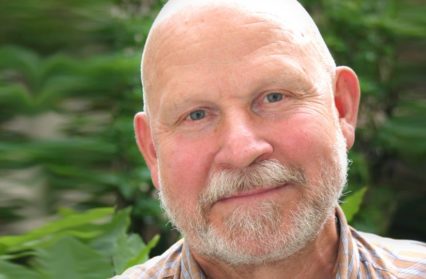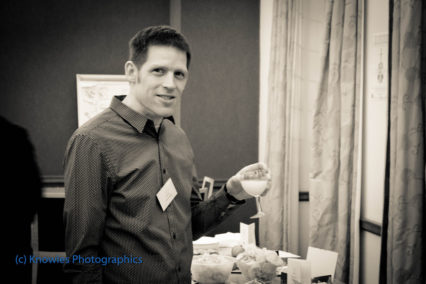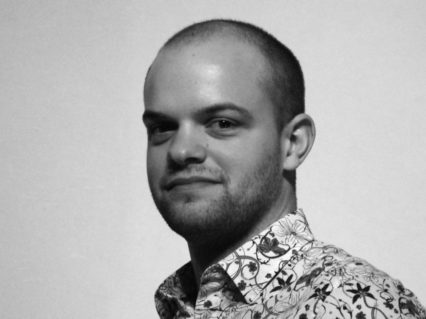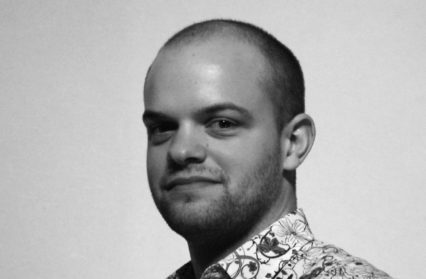BBC Hoddinott Hall, Wales Millennium Centre, Cardiff, 12 May 2016
BBC National Orchestra of Wales
Edwin Outwater: conductor
Madeleine Mitchell: violin
Mark David Boden – Ghyll (world premiere)
Guto Puw – Violin concerto, Soft Stillness
Pēteris Vasks – Sala (UK premiere)
As a composer in postwar Latvia, and harbouring a strong religious faith, Pēteris Vasks endured repression on both musical and spiritual fronts at the hands of the ruling Soviets. A profoundly thoughtful and self-effacing man, he has described himself as a ‘sad optimist’, and those early experiences continue to shape his music: diatonic with strong modal inflections, its style shows the influence of composers such as Górecki and Kancheli, and is rooted in the landscape, nature and choral traditions of his beloved homeland.

Championed by his countryman, the violinist Gidon Kremer, and the British conductor Kriss Rusmanis, Vasks became known in the west following Latvian independence in 1991. For Vasks, it was the bloody events in Riga that year which confirmed his artistic direction, when, as he put it, ‘in those moments a nation was made, and I came of age as a composer’. More recently he has expressed his disillusionment at subsequent political turns in Latvia, where ‘the Russian bear has changed only in name, but now there is a corrosive cynicism at work with the invasion of consumer culture. We’re running headlong into a Latvia where America has much to answer for; and it’s as though we’re being crushed between two rocks.’
Vasks has always offered his music as an enrichment of humanity; a spiritual bulwark against cultural and environmental fracture. If anything, in the light of worrying developments post-independence, that imperative has strengthened. Yet his music employs beauty, not didacticism, to make its mark on the listener. At its best, it is gloriously transcendent. Sala (2007), enjoying its UK premiere at the Vale of Glamorgan Festival, invokes twin titans of earlier, 20th century struggle: the surging, nature-organicism of Sibelius and the stoic suffering of Shostakovich. The work is passionately felt, but between the two, however, Vasks’ own voice proved not so distinct as in, say, his magnificent choral music performed two days earlier by the Latvian Radio Choir.
Edwin Outwater’s BBC National Orchestra of Wales made rather too comforting the rolling phrases of Sala, in which folk-like rhythmic asymmetries are off-set by a bass drum-propelled three-in-a-bar. Cast as a symphonic elegy in one movement, most poignant were solo woodwind melodies, where a plangent cor anglais, for example, echoed by clarinet and then flute, proved shapely against characteristically lush strings. Certainly, newcomers to Vasks would have found much to enjoy here in his uncluttered, openhearted emotion. But the arc-like structure did not ignite from within at the chosen tempo, and further expressive opportunities felt missed by the orchestra.

Perhaps it was a question of idiomatic sympathy – although the preceding performance of Guto Puw’s delicate, chamber-proportioned Violin Concerto also contained passages of over-restraint. This is a tender work, subtitled ‘Soft Stillness’ for the famous line in Shakespeare’s The Merchant of Venice. Commissioned by Tŷ Cerdd for the afternoon’s poised soloist, Madeleine Mitchell, and the Orchestra of the Swan – who together performed it beautifully at the 2014 Bangor New Music Festival – it seems to have found its natural form in its current, two movement design. Here it was the lovely second movement which cohered most strongly, where Mitchell was able to shape the lyricism of the whole through her rapt control of line, spinning some delicious harmonic webs.
Regardless of the busy, sometimes scurrying textures, the sense of ‘sweet melody’ was clear throughout the piece, and there were some exquisite instrumental handovers: between violin and piccolo, and violin and trumpet especially. Puw’s many colourful details of motif and texture make this a work that would repay repeated listening – and it would surely withstand greater ardency in performance without straying into unwanted drama.

In larger orchestral terms, it was Mark David Boden’s opening Ghyll which turned out to provide that latter to greatest, most positive effect. One of two Festival commissions in 2016 for this increasingly assured composer, Boden handled the full forces – often deployed tutti – with impressive verve. The piece is inspired by a Cumbrian landscape with which he clearly feels close affinity; ghyll is apparently a northern term for waterfall, and Boden duly obliged in sound, not just with cascades but with rivulets, pools, lakes and streams. The writing invoked John Adams in places – never a bad thing given that composer’s orchestral prowess – and did not lack for stasis and balance within an overall forwards momentum, despite Outwater’s sometimes stately tempi.
Overall, this was a concert to whet the orchestral appetite and inspire further investigation of three fine composers; one a distinguished exponent of a kind of passionately dignified Baltic sensibility, and two who happen to be born in and/or working in Wales at different stages of their career – both deserving of far wider attention.
For information about the Festival, including further performances of featured composer Pēteris Vasks – celebrating his 70th year alongside Artistic Director John Metcalf – go to http://www.valeofglamorganfestival.org.uk/ Watch out especially for the world premiere of Vasks’ Viola Concerto on Friday 20th May in a concert by the BBC NOW and soloist Maxim Rysanov at BBC Hoddinott Hall, alongside Metcalf’s evocative Cello Symphony (soloist Alice Neary).
Header photo: Pēteris Vasks











